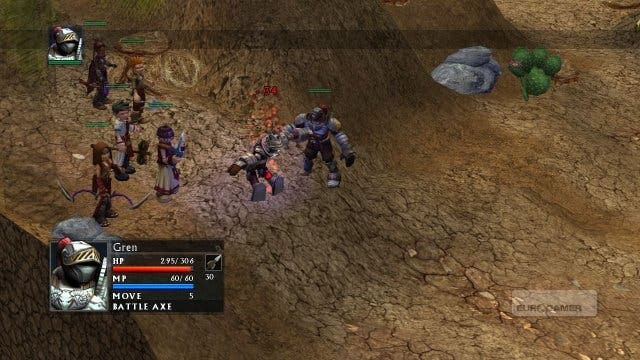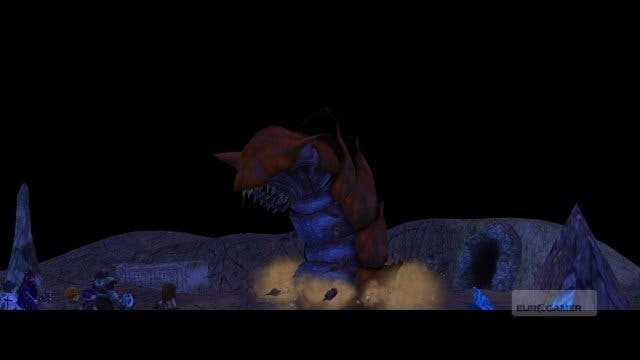Vandal Hearts: Flames of Judgment
An old flame.
The RPG element of the game comes from the character leveling, which is comfortably the most interesting aspect to an otherwise a fiercely traditional proposition. In the original Vandal Hearts units would earn experience points for kills, levelling up as they progressed through the game. Then, every 10 levels you’d have the option to specialise with a unique upgrade for the character, customising your team to suit your play style.
Flames of Judgment has a far more flexible and immediate system. Each character carries two weapons which can be switched without 'using up' an action turn. This means that you can change between a bow and an axe on the fly, turning your warrior into an archer in direct response to the lay of the battlefield.
Each weapon has its own proficiency level so kills made with a bow and arrow will advance the ranged skill level of that character, while eliminating a foe with a spell will make them a better mage. As such every action you take on the battlefield advances a particular trait of that unit, giving a conscientious player ample scope for micromanaging her team's abilities.

The system is somewhat buried in the game, only hinted at by on-screen readouts (presumably so as not to overwhelm the more casual audience that Konami hopes to reach via digital download). But once you realise how it works the whole experience becomes far more engaging.
As with Final Fantasy Tactics, Puzzle Quest et al there is a boardgame-style world-map screen to navigate around, with new areas opening up as you advance along its paths. Destinations on the map are either cities (which amount to little more than an awkwardly-implemented shop screen), free-play combat areas (where you can level your team outside of the main thrust of the storyline) or key story destinations.
After completing a stage you are given a score for your performance calculated from the number of enemies you defeated, but which doesn't take into account the proficiency of your performance. There are no bonuses for ensuring your team-mates survive, or for completing a stage within a set number of turns. This neglecting of details makes it harder to feel like you can excel at the game rather than simply progress through it.

The story centres around Tobias Martin, a war orphan and ward of the Church of Restoration, driven to defend his homeland from invaders. Players hoping for a Final Fantasy Tactics-style tussle between political and royal factions will be disappointed as, by contrast, Flames of Judgment's story is undernourished. This fact isn't helped by a cast of characters it's difficult to empathise with. They lack the gravity of, say, Valkyrie Profile: Covenant of the Plume or the levity of Disgaea's ensemble, instead settling into a vanilla, uninspiring middle ground.
The result is a serviceable tribute to strategy RPGs of 10 years ago, one that eschews recent developments to focus on a replication of what worked before. The game succeeds with this approach simply because it has so few contemporary rivals but it's a modest sort of success, one that proves the strategy RPG in its traditional form has run out of steam - but suggests that nevertheless, there's enjoyment to be had in revisiting old flames.








